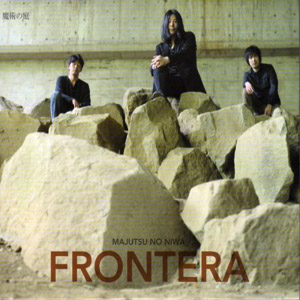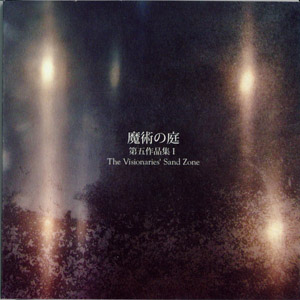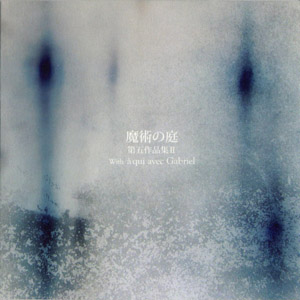Majutsu no Niwa, "Frontera", "Volume V Part I", "Volume V Part II"

Made up of the members of psych rock group Overhang Party (whose discography has been recently been compiled by Important Records), the trio lead by guitarist/vocalist Rinji Fukuoka captures much of that band’s sound and intensity in these two new albums and deluxe reissue. It also clearly shows the changes and development of their sound, using the past as a reference point but not being mired in it.
Frontera is a reissue of the band’s 2009 album as a lavish, heavy weight double LP that suits the music well, with the gatefold format capturing the classy excess of many a 70s double album.Most of the songs here balance between order and chaos, such as the enjoyably dissonant distortion but rhythmic backing to "Afunruparo" and the hard rock blast and wah laden solos of "Majutsu no Niwa (Magikal Garden)."The distorted, cyclic sound of "Night Cruise" feels like an appropriately respectful nod to Loop, a sound they will return to later.
It would be impossible to simply peg this album as another modern take on space rock though, from the rapid, almost Ramones like surge of "Turn to Flames" and the blues/folk inspired 1960s throwback of "Journey to the End of the Night (Voyage Au Bout de la Nuit)".The final piece, the sprawling 22 minute "La Vena" features artist Sachiko on added electronics, and makes for a gloriously sprawling piece of noise, occasionally flirting with traditional structure but just as quickly turning away from it.

Their newest work is two separate and very different albums that almost sound like two different bands.I must admit to favoring Part I-The Visionaries' Sand Zone the most, with its more abstract feel overall, but heavily based upon a fuzz heavy guitar sound that again channels Loop without sounding like an also ran.
"Desolate Seashore" and "Spring Storms" opt for a majestic sound, working the fuzzed out guitars into a clearly structured and organized dramatic composition.This sound is paired with the likes of "The Call of Thanatos" and "Tick Tack", both of which turn up the tempo and sound a bit looser, almost sloppier, but intentionally so, like some of Boris' best unhinged moments.

The companion album, Part II:With à qui avec Gabriel, takes a drastic turn into a more folk oriented, stripped down approach that leans more into acoustic guitars and accordion.Compared to their other material, it is far more skeletal and understated.On "Wolf, Scorpion, Earth Fang" and "A Gust of Wind" the sound ends up a bit more complex, with the accordion intertwining strangely, but quite well, with the mildly distorted electric guitar.
"Whither" is the only song that sounds more in league with the Part I album:even though the accordion makes for an odd inclusion, the whole thing comes together as more of an uptempo rock sound."Marseille" also stands out, although here it has a more bluesy lurch in comparison to the rest.
Admittedly, the Part II album does not quite resonate as much with me.I can definitely appreciate it as a well-written and structured album, but the folk type sound has never really been my thing, especially when paired with the more raucous space rock sound they are otherwise known for is so great.When they are more focusing on the loud guitars and rapid rhythms though, it comes together quite brilliantly.
samples:
 



